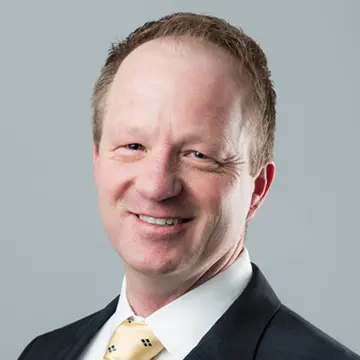Flexible data centers can reduce costs — if not emissions
Data centers that shift workload to different times of day save money, but the environmental impact depends on the local grid.

Faculty
Christopher Knittel is the Associate Dean for Climate and Sustainability, the George P. Shultz Professor and a Professor of Applied Economics at the MIT Sloan School of Management.
Prior to MIT Sloan, Knittel taught at the University of California, Davis, and at Boston University. His research focuses on industrial organization, environmental economics, and applied econometrics.
Knittel is an associate editor of The American Economic Journal— Economic Policy, The Journal of Industrial Economics, and the Journal of Energy Markets. His research has appeared in The American Economic Review, The Review of Economics and Statistics, The Journal of Industrial Economics, The Energy Journal, and other academic journals. He also is a Research Associate at the National Bureau of Economic Research in the Productivity, Industrial Organization, and Energy and Environmental Economics groups.
Knittel holds a BA in economics and political science from California State University, Stanislaus; an MA in economics from the University of California, Davis; and a PhD in economics from the University of California, Berkeley.
http://knittel.world
Senga, Juan Ramon L., Audun Botterud, John E. Parsons, S. Drew Story, and Christopher R. Knittel. Nature Energy. Forthcoming.
Clausing, Kimberly A., Christopher R. Knittel, and Catherine Wolfram. Brookings Papers on Economic Activity. Forthcoming.
Knittel, Christopher R., and Samuel Stolper. The Economic Journal Vol. 135, No. 672 (2025): 2377-2401. NBER Working Paper.
Knittel, Christopher R., Juan Ramon L. Senga, and Shen Wang, MIT Sloan Working Paper 7348-25. Cambridge, MA: MIT Sloan School of Management, July 2025. NBER Working Paper No. 34065.
Knittel, Christopher R., Gilbert E. Metcalf, and Shereein Saraf, MIT Sloan Working Paper 7349-25. Cambridge, MA: MIT Sloan School of Management, June 2025.
Comincioli, Nicola, Christopher R. Knittel, Elsa A. Olivetti, Ilenia G. Romani, and Sergio Vergalli. Annual Review of Resource Economics Vol. 17, (2025).

Data centers that shift workload to different times of day save money, but the environmental impact depends on the local grid.

Climate policy expert Christopher Knittel handicaps the likelihood of tariffs, cuts to IRA subsidies, and a carbon tax under the new administration.
Professor Christopher Knittel, associate dean for climate and sustainability, said there's some truth to what each side is saying. "They can both be right that electricity prices are growing at much faster than the rate of inflation. Oil prices have fallen somewhat," Knittel said. He noted that the ultimate impact on consumers will depend on how much gasoline they use compared to how much electricity, "and that varies a lot by household."
In a new working paper, associate dean for climate and sustainability Christopher Knittel, professor Catherine Wolfram, and co-author found that even using what they describe as a "narrow accounting" method — looking only at climate impacts from heat and extreme weather on household budgets and mortality — there were "sizable costs to U.S. households from recent climate change patterns."
"If I had my druthers, we would get rid of net-metering, have a smart way to price electricity imports and exports, and then get rid of the cap," said Christopher Knittel, associate dean for climate and sustainability. "But what I worry about in the absence of a cap is a bunch of wealthy towns building a lot of solar and then transferring their transmission and distribution costs to the poorer towns that don't have the means to build as much solar."
Studies of the economic impacts of climate change often look at long-term, national costs. A new BPEA study by professors Christopher Knittel and Catherine Wolfram takes a different approach, focusing on the current household level costs attributable to changing weather. Professor Wolfram joined the Brookings Podcast on Economic Activity to discuss the research.